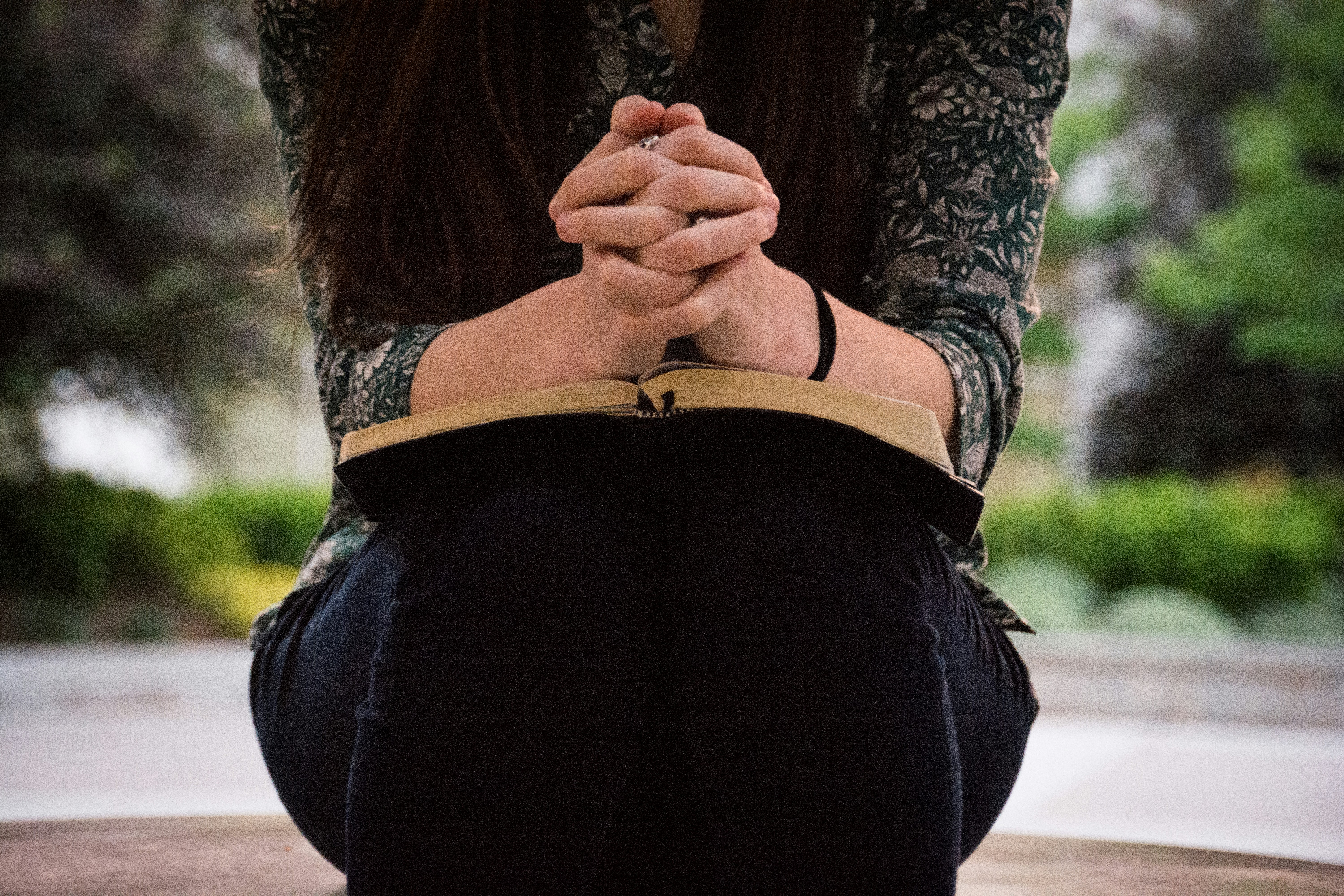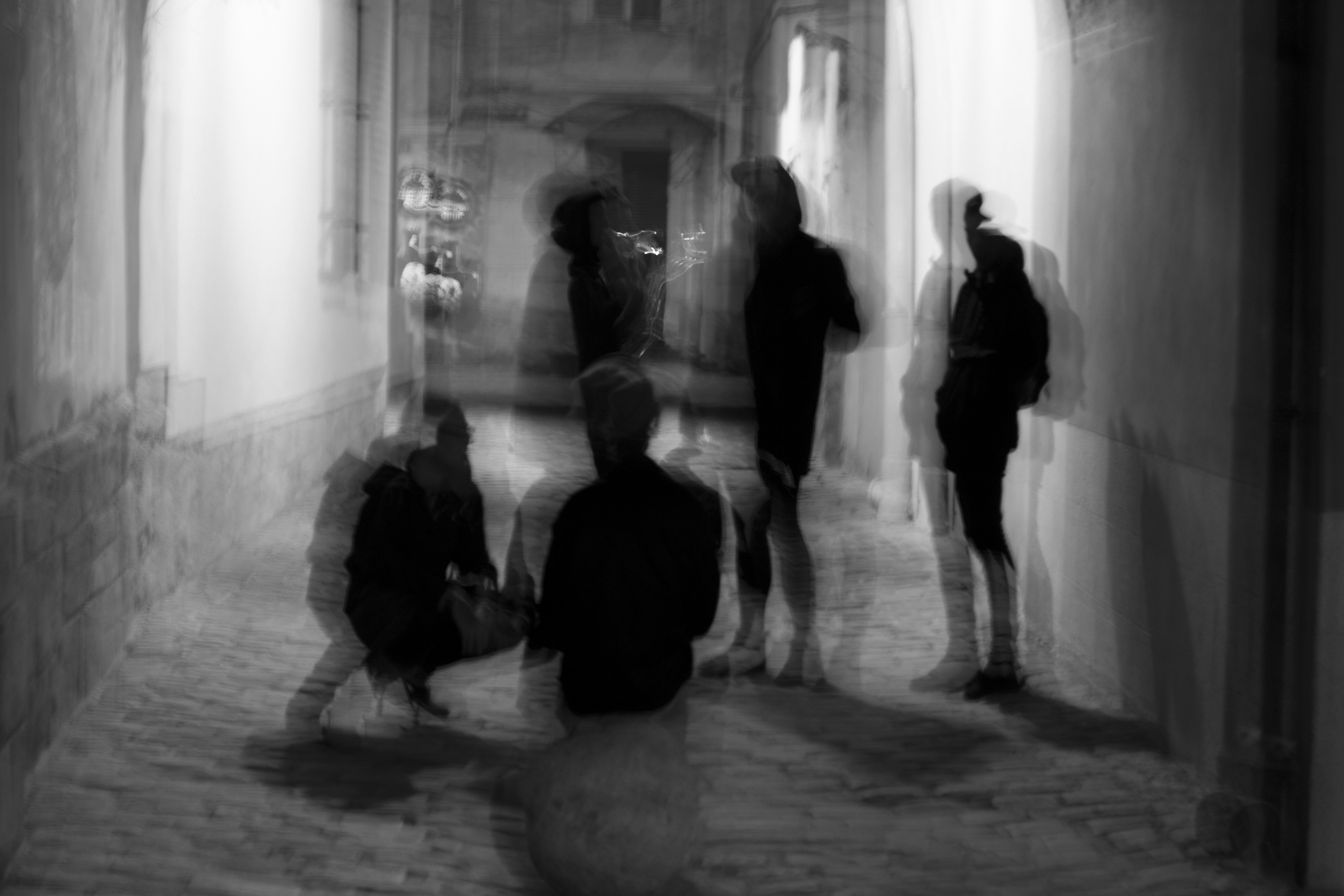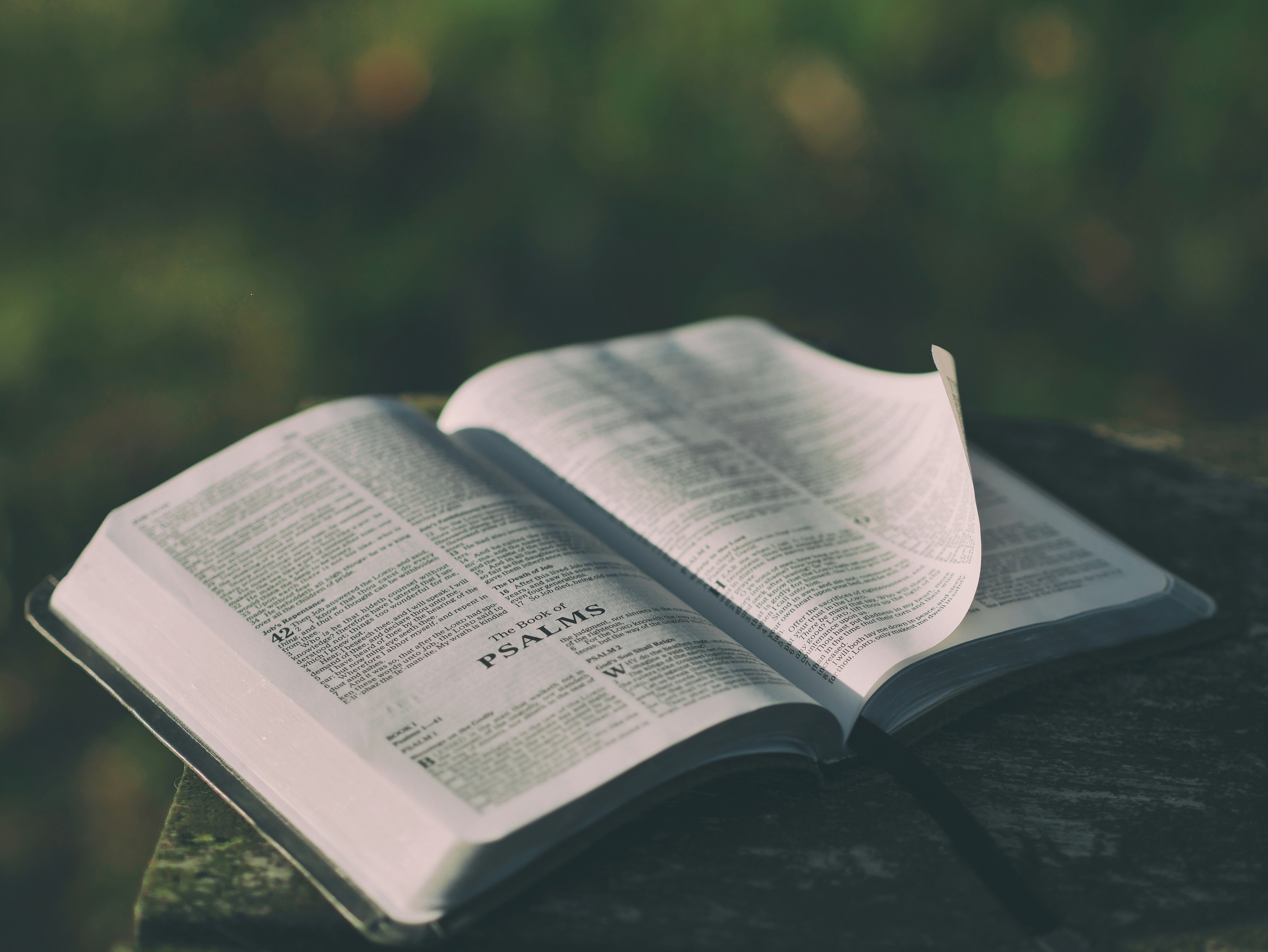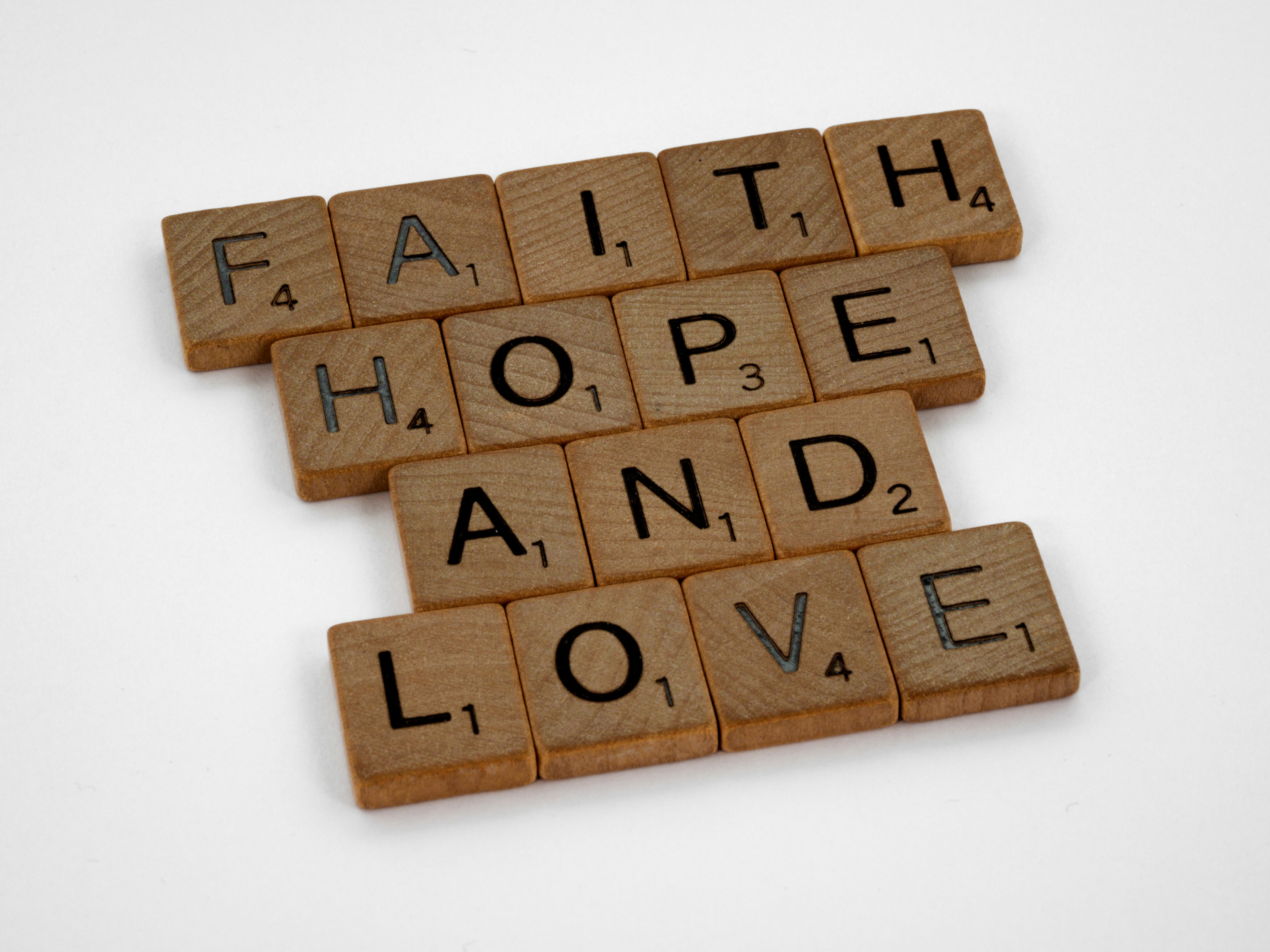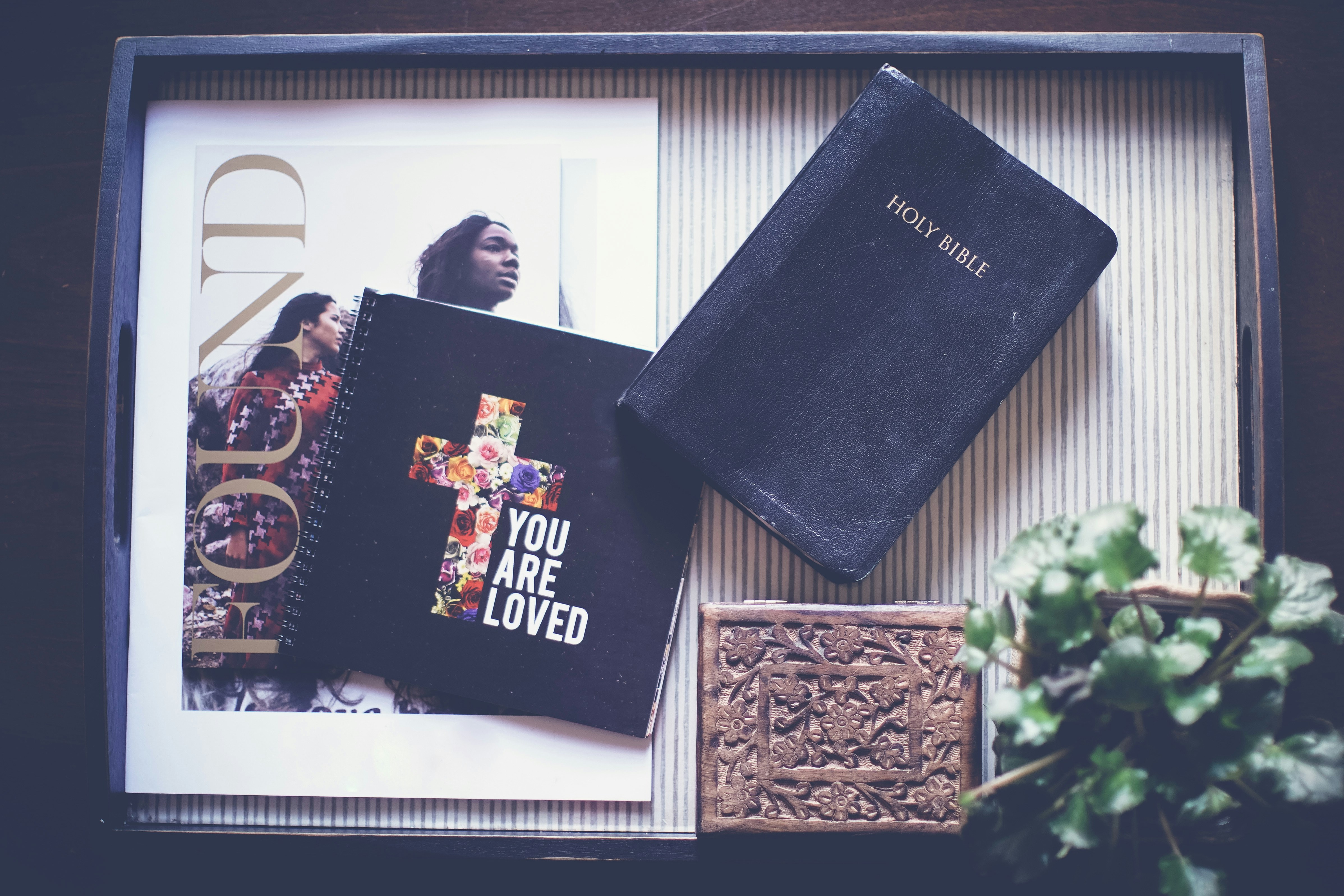Healing the Wounded Soul: A 30-Day Bible Study for PTSD and Emotional Trauma
A 30-day Bible study offering comfort, healing, and identity restoration for those suffering from PTSD and emotional trauma of any kind.
Table of Contents
Table of Contents
📘 Introduction
PTSD is often misunderstood. It’s not simply fear. It’s not weakness. It’s not a lack of faith. It’s the long, lingering effect of trauma—when the body remembers what the mind wants to forget. It can follow combat, yes, but also childhood abuse, domestic violence, sexual assault, medical trauma, natural disasters, bullying, betrayal, grief, or any moment that shattered your sense of safety.
If you’re living with PTSD, you might struggle with hypervigilance, intrusive memories, numbness, panic attacks, flashbacks, or shame. You may feel disconnected from others, from your past, even from yourself. But hear this: you are not beyond healing. And you are not alone.
God sees the hidden wounds. He understands what no one else has fully grasped. The Bible is filled with stories of survivors—people who cried out from the depths, who walked through trauma and emerged with testimony. And Scripture offers more than comfort—it offers transformation.
This Bible study is not a quick fix. It is a sacred space for you to bring your pain before the Lord, one day at a time. Each day will guide you through Scripture, provide space for reflection, and help you reconnect with the God who heals the brokenhearted and binds up their wounds.
You don’t have to be “over it” to begin. Just come as you are. Bring your whole story. Jesus meets you in the wreckage—not with condemnation, but with compassion, truth, and power.
Let’s walk together toward healing.
Day 1: 🕊️ God Sees Your Pain
📖 Daily Scripture:
"You are the God who sees me," for she said, "I have now seen the One who sees me."
—Genesis 16:13 (NIV)
📚 Supporting Scripture:
"The Lord is close to the brokenhearted and saves those who are crushed in spirit."
—Psalm 34:18 (NIV)
✨ Devotional:
Pain that lingers can feel invisible. Many people around you may not understand what you’re carrying. Trauma has a way of isolating—of convincing you that no one sees you, no one gets it, no one truly cares. But from the very first page of Scripture to the last, we find a God who not only sees pain—He enters into it.
Hagar, the woman in today’s reading, was used, mistreated, and cast out. Alone in the desert with no hope, she expected to die. But God showed up—not to lecture, not to condemn—but to comfort. She named Him El Roi, "the God who sees me." That name still holds power.
Psalm 34:18 makes it even more personal. Not only does God see you—He draws close to you in your brokenness. He doesn’t wait for you to “heal enough” or “feel better.” He moves toward you right now, in your crushed spirit, in your weariness, in your pain.
Your trauma is not hidden from God. The tears you cried that no one else noticed? He saw them. The sleepless nights? He stayed with you. The shame and confusion? He understands.
You may not have words for what happened—or how you feel about it—but God does. He knew it before it occurred, and He holds space for it now. You don’t have to be okay for Him to be close.
Today, let this truth settle over you: God sees you. All of you. And He is not turning away.
🪞 Reflection:
You are fully seen by God—your pain, your past, your present. He is not afraid of your story. He steps into it with mercy and healing in His hands.
✍️ Journal Questions:
- In what ways have you felt invisible in your pain?
- How does it change things to know God sees every part of your story?
- What would you say to God if you truly believed He was listening—right now?
🙏 Daily Prayer:
Father, thank You for being the God who sees. Sometimes I feel invisible in my pain—like no one really understands what I’ve been through. But You do. You saw it all. You stayed with me. And You are still here. Help me open my heart to You, even when it hurts. Help me trust that You are close, even when I feel alone. Begin the healing work in me, Lord. In Jesus’ name, Amen.
Day 2: 🧡 You Are Not Broken Beyond Repair
📖 Daily Scripture:
"He heals the brokenhearted and binds up their wounds."
—Psalm 147:3 (NIV)
📚 Supporting Scripture:
"Though he brings grief, he will show compassion, so great is his unfailing love."
—Lamentations 3:32 (NIV)
✨ Devotional:
PTSD has a way of making you feel permanently damaged. The flashbacks, the numbness, the emotional extremes—they can convince you that you’re beyond fixing. You may believe the lie that healing is for other people, but not for you.
But Psalm 147:3 tells a different story. God heals the brokenhearted. Not just the mildly bruised. Not just those with manageable struggles. He moves toward those shattered in spirit. He doesn't shame the broken. He gently and patiently binds up wounds—internal and external, seen and unseen.
It’s important to realize: Healing in the biblical sense doesn’t always mean “erase the pain” or “forget it ever happened.” Sometimes it means making something whole again, even though it was once shattered. God doesn’t discard broken things—He restores them.
Lamentations 3:32 reminds us that even when grief is real—and it is—God’s compassion is greater. You may still feel the weight of your trauma, but it is not evidence that you are broken beyond repair. It’s evidence that you need a Healer. And Jesus is not afraid to step into your wounded places.
You are not too far gone. You are not too much. You are not a lost cause.
The same God who created galaxies also created your soul—and He knows how to restore it. One moment at a time. One wound at a time. One breath at a time.
🪞 Reflection:
Your trauma is real—but so is God’s power to restore. No matter how deep the wound, His compassion is deeper still.
✍️ Journal Questions:
What areas of your life or identity feel “beyond repair”?
How have you viewed yourself through the lens of trauma?
What would it mean to trust that God is already beginning the process of restoring you?
🙏 Daily Prayer:
God, I feel broken. Some days it’s hard to imagine being whole again. But Your Word says You heal the brokenhearted—and I want to believe that’s true for me. Help me to stop seeing myself as a hopeless case. Begin Your healing in me, even in the places I’ve tried to hide. Restore what trauma has tried to take. Thank You for Your endless compassion. In Jesus’ name, Amen.
Day 3: 😭 He Collects Every Tear
📖 Daily Scripture:
"You keep track of all my sorrows. You have collected all my tears in your bottle. You have recorded each one in your book."
—Psalm 56:8 (NLT)
📚 Supporting Scripture:
"Blessed are those who mourn, for they will be comforted."
—Matthew 5:4 (NIV)
✨ Devotional:
Trauma often leaves a trail of silent tears—cried in the dark, behind closed doors, or deep within where no one sees. When you live with PTSD, it can feel like your sorrow is too much for others to understand or handle. But Scripture tells a different story: God sees every tear, and He keeps count.
Psalm 56:8 reveals the intimate heart of God. He doesn’t just notice your pain; He records it. Every tear is collected—not lost, not wasted. Your suffering is not dismissed or overlooked in His eyes. It is honored, stored, and remembered with compassion.
This isn't poetic exaggeration—it’s personal. Your pain matters so much to God that He tracks it, as if each moment of sorrow deserves sacred space in His memory. You may have been told to “move on” or “stop crying,” but Jesus never says that. In fact, He wept too (John 11:35). And in Matthew 5:4, He promises comfort to those who mourn.
There is no expiration date on grief. Whether your trauma happened last year or decades ago, the pain it left behind is real—and so is God’s comfort. He doesn’t rush you. He doesn’t shame your emotions. Instead, He enters into them.
So if tears come today, let them. They are safe with God. Every tear you shed is seen by the One who is committed to carrying your burden and healing your wounds.
🪞 Reflection:
Tears are not a sign of weakness. They are prayers in liquid form—evidence that you still care, still hope, still long for healing. And God treasures them all.
✍️ Journal Questions:
- Are there tears or emotions you’ve tried to suppress or ignore? Why?
- How does it feel to know that God records every tear you cry?
- What grief are you carrying today that you want to bring before the Lord?
🙏 Daily Prayer:
Father, I’ve cried so many tears—some that I showed, and others I buried. Thank You for not wasting a single one. Help me to believe that You see me, even in my sorrow. Comfort me today with the truth that I’m not alone in my pain. Wrap me in Your presence as I grieve, and remind me that healing is possible with You. In Jesus’ name, Amen.
Day 4: 🆔 Trauma is Not Your Identity
📖 Daily Scripture:
"See, I have engraved you on the palms of my hands; your walls are ever before me."
—Isaiah 49:16 (NIV)
📚 Supporting Scripture:
"You are a chosen people, a royal priesthood... God’s special possession."
—1 Peter 2:9 (NIV)
✨ Devotional:
Trauma often rewrites how we see ourselves. It can rename us: Broken. Unworthy. Weak. Forgotten. These labels begin to feel like identity markers, and without realizing it, we start living like the pain we endured is who we are.
But God tells a different story.
In Isaiah 49:16, God says to His people, “I have engraved you on the palms of My hands.” This is not casual affection. It is permanent belonging. He is declaring that your identity is not shaped by what wounded you—but by the One who holds you.
You may have been abused, abandoned, violated, or shamed. But you are not your trauma. In Christ, you are chosen. You are seen. You are valued—not for what you’ve survived, but for who you are in Him. 1 Peter 2:9 calls you “God’s special possession.” Your scars are not your name. His love is.
Healing begins when we stop agreeing with the lies trauma tells us about our identity. You are not the “damaged one.” You are not defined by fear. You are not only what happened to you.
You are engraved on the hands of God—etched into the heart of the One who heals.
It may take time to believe that again. But He’s patient. And He’s ready to rewrite the truth over your life, one word at a time.
🪞 Reflection:
Trauma may mark your story, but it doesn’t get to name you. Only God does—and He calls you beloved, whole, and His.
✍️ Journal Questions:
- What labels has trauma tried to assign to you?
- How do those labels compare to what God says about you in Scripture?
- What would it look like to start living from your identity in Christ instead of your trauma?
🙏 Daily Prayer:
Lord, I confess that sometimes I believe the lies trauma has told me—that I’m unworthy, broken, or forgotten. But You say I’m Yours. Engraved on Your hands. Help me to let go of the false names and remember who I am in You. Restore my identity in truth and give me courage to walk in it. In Jesus’ name, Amen.
Day 5: ✝️ Jesus Meets You in the Middle of It
📖 Daily Scripture:
"The Word became flesh and made his dwelling among us. We have seen his glory... full of grace and truth."
—John 1:14 (NIV)
📚 Supporting Scripture:
"Come to me, all you who are weary and burdened, and I will give you rest."
—Matthew 11:28 (NIV)
✨ Devotional:
When you live with PTSD, it can feel like no one truly understands what you’re going through. Even those who try to help may feel distant, unsure, or unable to relate to the depth of your pain. But there is One who does—and not just from a distance.
Jesus didn’t stay far off. He didn’t save the world from the clouds. He stepped into it—into our mess, into our grief, into our trauma.
John 1:14 tells us that “the Word became flesh and made His dwelling among us.” That means God didn’t just send comfort—He became it. He lived a fully human life, experiencing rejection, betrayal, suffering, physical pain, and emotional agony. He wept. He groaned. He sweat blood. He knows trauma.
In Matthew 11:28, Jesus doesn’t offer advice. He offers Himself. “Come to me,” He says, “and I will give you rest.” This is not a burdensome invitation. It’s one filled with gentleness and mercy.
Jesus doesn’t wait for you to clean yourself up. He doesn’t say, “Come when you’re ready.” He says, “Come when you’re weary. Come when you’re burdened.”
You don’t have to feel strong to come to Him. You don’t have to pretend. He meets you in the middle of your story—not at the end. And when you come, He carries the weight you’ve held alone for far too long.
🪞 Reflection:
Jesus understands your trauma and welcomes your weariness. His presence is not reserved for the healed—it is the very place where healing begins.
✍️ Journal Questions:
- Have you struggled to believe that Jesus truly understands your pain? Why or why not?
- What burdens are you carrying that feel too heavy today?
- What would it look like to bring those burdens honestly to Jesus?
🙏 Daily Prayer:
Jesus, thank You for stepping into our broken world—and into my broken heart. You know what it means to suffer. You are not distant from my pain. I give You the burdens I’ve carried alone. Meet me in the middle of it, Lord. Bring rest to my weary soul and peace where there has been only fear. In Your name I pray, Amen.
Day 6: 🗣️ Telling the Truth About Your Pain
📖 Daily Scripture:
"How long, Lord? Will you forget me forever? How long will you hide your face from me?"
—Psalm 13:1 (NIV)
📚 Supporting Scripture:
"Pour out your hearts to him, for God is our refuge."
—Psalm 62:8b (NIV)
✨ Devotional:
Trauma often teaches you to stay silent. You may have been told to “get over it,” “move on,” or “just be strong.” Over time, this can train your heart to believe that speaking the truth about your pain is weakness—or worse, disobedience.
But Scripture shows us something radically different: God invites honesty.
David, a man after God’s own heart, poured out raw, unfiltered anguish in Psalm 13. “How long, Lord?” he cried. “Will you forget me forever?” This wasn’t polite. It wasn’t edited. It was honest. And God welcomed it.
Psalm 62:8 tells us to pour out our hearts to God. Not to filter, censor, or spiritualize everything first—just pour. God doesn’t need you to clean up your pain before He’ll listen. He already knows. But He longs for relationship, and that begins with honesty.
Telling the truth about your trauma can be terrifying. It may bring up shame, fear, or resistance. But God is not afraid of your truth. He can handle your “How long?” and your “Why?” and your “I don’t understand.” And in the process, something beautiful happens: truth opens the door to healing.
You don’t have to tell your whole story at once. Start small. Start where it hurts today. God is listening—and He is safe.
🪞 Reflection:
Honesty is not rebellion—it’s worship. Your vulnerability before God is not weakness. It’s a sacred offering of trust and a step toward wholeness.
✍️ Journal Questions:
- What pain have you been avoiding or suppressing in your relationship with God?
- What would it feel like to speak honestly to Him, like David did?
- What’s one truth about your trauma you’ve never said out loud—even in prayer?
🙏 Daily Prayer:
God, I’ve hidden some of my pain—even from You. I’ve been afraid to say how I really feel. But You already know. Help me to open up to You without fear or shame. Give me the courage to tell the truth about my wounds, and meet me with grace when I do. Thank You for being safe, steady, and always near. In Jesus’ name, Amen.
Day 7: 🛑 Fear Is Not the End of the Story
📖 Daily Scripture:
"So do not fear, for I am with you; do not be dismayed, for I am your God. I will strengthen you and help you..."
—Isaiah 41:10 (NIV)
📚 Supporting Scripture:
"Even though I walk through the darkest valley, I will fear no evil, for you are with me."
—Psalm 23:4a (NIV)
✨ Devotional:
Fear is a constant companion in the world of PTSD. It lurks beneath the surface, it jumps out at the smallest triggers, and it often tells you lies—You’re not safe. You’re not okay. You’re not going to make it.
But Scripture speaks louder than fear.
God doesn’t say, “You’ll never be afraid.” He says, “Do not fear, for I am with you.” That’s a promise not of escape but of presence. Your fear doesn’t disqualify you from His love or protection. He walks with you through the fear—not just when it’s gone.
Psalm 23:4 echoes that promise. Even in the darkest valley—literal or emotional—David says, “I will fear no evil.” Why? Because God is with him. Not because the valley isn’t scary, but because God’s presence is stronger than the darkness.
It’s important to remember: Fear is not a spiritual failure. It’s a normal, human response to trauma. But it is also not the end of your story. God gets the final word—not fear, not PTSD, not panic.
He will strengthen you. He will help you. He will uphold you. You may feel terrified today, but you are not walking alone. You are being held by the One who never lets go.
Let today be a declaration: Fear may visit me, but it will not rule me. God is here—and He is not afraid.
🪞 Reflection:
Fear may be part of your journey, but it is not your identity. God walks with you through every shadow—and His presence is greater than the fear.
✍️ Journal Questions:
- What fear has been gripping your heart lately?
- How does God’s promise of presence speak into that fear?
- What does it look like to walk through fear with God—not around it?
🙏 Daily Prayer:
Father, fear feels so loud sometimes. It convinces me I’m in danger, even when I’m not. But You are bigger than my fear. You promise to walk with me, to strengthen me, to uphold me. Help me trust You in the middle of my panic, and remind me that fear doesn’t get the final word—You do. In Jesus’ name, Amen.
Day 8: 🧷 Triggers and the Power of Grounding in God
📖 Daily Scripture:
"You will keep in perfect peace those whose minds are steadfast, because they trust in you."
—Isaiah 26:3 (NIV)
📚 Supporting Scripture:
"Be still, and know that I am God."
—Psalm 46:10a (NIV)
✨ Devotional:
One of the hardest realities of PTSD is the unpredictability of triggers—those moments when a smell, sound, phrase, or image sends your body into panic, even if your mind knows you're safe. Triggers are involuntary. You didn’t choose them. But you can choose how you respond when they show up.
When your mind spirals and your heart races, you need something stronger than fear to anchor you. That’s where the practice of grounding meets the power of God.
Isaiah 26:3 offers a promise: Perfect peace to those whose minds are steadfast. Not perfect peace to those with perfect circumstances. But to those who choose—even amid trembling—to fix their thoughts on God.
This isn’t about ignoring the trigger or pretending you’re okay. It’s about remembering who holds you in the chaos. Grounding might look like reciting Scripture, feeling the texture of a cross in your hand, speaking God’s name out loud, or focusing on your breath as a prayer: “Jesus in... fear out.”
Psalm 46:10 whispers, Be still and know. You don’t have to fix the trigger. You don’t have to solve the spiral. But you can return your heart to the One who is not shaken. Even if your body feels out of control, your spirit can rest in the unchanging presence of God.
With practice, His peace will become the safest place you know.
🪞 Reflection:
Triggers do not mean you’ve failed. They are reminders to return—again and again—to the truth that God is with you and peace is possible in His presence.
✍️ Journal Questions:
- What are some common triggers you experience, and how do they affect you?
- How have you tried grounding yourself in the past?
- What would it look like to bring God into those grounding practices?
🙏 Daily Prayer:
God, You know how easily I get triggered—how quickly fear rushes in. But You are steady when I am shaking. Teach me how to anchor myself in You. Help me practice stillness, trust, and truth when panic tries to take over. Surround me with Your peace that passes understanding. In Jesus’ name, Amen.
Day 9: 🌙 When Nightmares Follow You
📖 Daily Scripture:
"In peace I will lie down and sleep, for you alone, Lord, make me dwell in safety."
—Psalm 4:8 (NIV)
📚 Supporting Scripture:
"When you lie down, you will not be afraid; when you lie down, your sleep will be sweet."
—Proverbs 3:24 (NIV)
✨ Devotional:
Sleep is supposed to be restful. But for many trauma survivors, night is not a time of peace—it’s a battleground. Nightmares, flashbacks, and night terrors can leave you exhausted, anxious, and afraid to close your eyes.
PTSD disrupts the body’s natural sense of safety, and this doesn’t turn off just because the lights go out. But God’s promises don’t expire at bedtime either. Psalm 4:8 reminds us that peace while sleeping is not just possible—it’s a gift from God. David wrote these words while surrounded by danger, yet he trusted in the Lord’s ability to protect his body and calm his spirit.
Proverbs 3:24 reinforces this: You will not be afraid... your sleep will be sweet. That’s not poetic fluff—it’s truth rooted in trust. Sweet sleep may not come every night. But on the nights it does, thank God. And on the nights it doesn’t, invite Him in—into the fear, into the dream, into the dark.
You can pray before you sleep. You can play worship music or speak Scripture out loud. You can anoint your pillow with oil as a reminder of God’s presence. You can even pause mid-nightmare and cry out, “Jesus, be near.”
God doesn’t clock out at night. He is with you even in the dreams that stir terror. His name is greater than your fears—even in your sleep.
🪞 Reflection:
Your trauma may try to haunt you at night, but God never slumbers. He watches over you and offers peace deeper than your fear—even while you rest.
✍️ Journal Questions:
- How has trauma affected your ability to sleep or feel safe at night?
- What nightly practices might help you invite God’s presence into your rest?
- What truth do you want to cling to when fear wakes you up?
🙏 Daily Prayer:
God, night is often the hardest time. Fear creeps in, and my mind replays what I wish I could forget. But You are with me. You never sleep. Help me feel Your nearness tonight. Surround my bed with Your peace. Guard my mind and body. And even in the dreams I can’t control, hold me safely in Your hands. In Jesus’ name, Amen.
Day 10: 🔁 Flashbacks and God’s Steadfast Presence
📖 Daily Scripture:
"Even there your hand will guide me, your right hand will hold me fast."
—Psalm 139:10 (NIV)
📚 Supporting Scripture:
"Jesus Christ is the same yesterday and today and forever."
—Hebrews 13:8 (NIV)
✨ Devotional:
Flashbacks can feel like time travel—but not the good kind. Without warning, your brain pulls you back into a moment of fear, shame, or pain. Your body reacts as if it’s happening all over again. You may feel helpless, out of control, or even disconnected from reality.
In these moments, it’s easy to wonder: Where is God when I’m pulled into the past?
Psalm 139:10 gives us a profound answer: even there—He is with you. Whether “there” means the moment the trauma happened, the memory that hijacks your day, or the emotional chaos that follows—God’s hand is still holding you.
Flashbacks are not your fault. They’re not signs that you’re failing or going backward. They’re evidence that your body and mind are still healing. And healing takes time.
What matters is what anchors you in the middle of the flashback. That’s where God’s unchanging presence becomes a lifeline. Hebrews 13:8 reminds us that Jesus is the same yesterday, today, and forever. He was with you in the original moment of pain—even if it didn’t feel like it. He is with you in the memory of it now. And He will be with you in the healing still to come.
You don’t have to fight your way out of every flashback alone. When they come, invite God into them. Breathe His name. Recite a verse. Picture His hand on your shoulder. He’s not afraid of your past, and He’s not leaving you in it.
🪞 Reflection:
Flashbacks may drag you into the past, but God’s presence meets you even there. He holds your present pain with tender strength—and never lets go.
✍️ Journal Questions:
- How have flashbacks affected your sense of safety or control?
- What would it look like to bring God into a painful memory or moment?
- How does it comfort you to know that Jesus is the same “yesterday and today and forever”?
🙏 Daily Prayer:
Lord, You know the moments that still haunt me. When flashbacks come, help me remember that I am not alone. Anchor me in Your steady presence. Guide my mind back to truth. Hold me when I feel lost in the past. Thank You for being unchanging, even when my memories are unstable. In Jesus’ name, Amen.
Day 11: 🏠 God Is a Safe Refuge
📖 Daily Scripture:
"The Lord is a refuge for the oppressed, a stronghold in times of trouble."
—Psalm 9:9 (NIV)
📚 Supporting Scripture:
"You are my hiding place; you will protect me from trouble and surround me with songs of deliverance."
—Psalm 32:7 (NIV)
✨ Devotional:
When trauma has disrupted your sense of safety, it’s hard to know where to run when fear strikes. Places that used to feel secure may now trigger anxiety. People who were once trustworthy may no longer feel safe. And sometimes—even your own body can feel like an unsafe place to live.
But God offers something the world cannot: a refuge.
Psalm 9:9 says the Lord is a refuge for the oppressed. Not might be. Not was. Is. Right now. For you. A refuge is a place of shelter, defense, and rest when storms are raging. It doesn’t mean the storm stops—it means you have somewhere to go while it howls.
Psalm 32:7 takes it further—He is not just a refuge. He is a hiding place. You can tuck yourself under His care, and He will sing songs of deliverance over you. Songs that drown out the noise of fear. Songs that speak truth when trauma screams lies.
You don’t need to have it all together to enter that refuge. You don’t need to be fearless. You just need to run to Him.
In practical moments—when you're overwhelmed, triggered, or emotionally flooded—say His name. Whisper a prayer. Step away from the noise. Visualize His arms wrapping around you like a weighted blanket of peace.
God is not just your Savior. He is your Safe Place. And He’ll never shut the door.
🪞 Reflection:
Safety is not just a physical space—it’s a spiritual one. God invites you to hide in Him, not to escape life, but to rest and be restored in His presence.
✍️ Journal Questions:
Where or when do you feel most unsafe—and why?
How does it feel to think of God as your refuge and hiding place?
What might it look like to “run to Him” when you feel emotionally overwhelmed?
🙏 Daily Prayer:
God, sometimes I feel like I have nowhere safe to go—not even inside my own thoughts. But You are my refuge. My hiding place. My stronghold. Remind me that I can run to You, not just when things are calm, but especially when they’re chaotic. Shelter me with Your presence and sing over me with songs of peace. In Jesus’ name, Amen.
Day 12: 🩺 His Name Is Healer
📖 Daily Scripture:
"He said, 'If you listen carefully to the Lord your God... I am the Lord, who heals you.’"
—Exodus 15:26b (NIV)
📚 Supporting Scripture:
"Praise the Lord, my soul... who forgives all your sins and heals all your diseases."
—Psalm 103:2–3 (NIV)
✨ Devotional:
When you hear the word healing, what comes to mind? For many trauma survivors, it can feel like a loaded word—something that seems unreachable or unfairly delayed. You may have asked: Why am I still suffering? Why hasn’t God healed this yet?
These are valid, honest questions. And the Bible doesn’t dismiss them. But what Scripture does remind us is this: Healing is not just something God does. It’s who He is.
In Exodus 15:26, God reveals Himself to His people as Jehovah Rapha—“The Lord who heals.” This name is not tied to instant results or magic fixes. It’s rooted in relationship. God says, “I heal because it’s in My nature. I’m a healer because I love.”
Psalm 103 backs this up: He heals “all your diseases”—which includes the wounds you can’t see. Emotional trauma, mental distress, PTSD—they all fall under God’s domain of healing.
Does healing always happen immediately? No. Sometimes it’s a layered process. Sometimes it’s miraculous. Other times it comes through therapy, community, tears, Scripture, and time. But no matter the form, the Healer is always present.
God is not just waiting at the finish line of your healing. He’s walking with you, healing you step-by-step. And what He starts, He will finish.
🪞 Reflection:
God doesn’t just heal bodies—He heals hearts, minds, and souls. And His healing is both a process and a promise that you are never alone in the journey.
✍️ Journal Questions:
- How have you viewed God in relation to your healing—near, far, delayed, involved?
- What part of you still needs healing that you’ve been afraid to bring to Him?
- How might it change your view of healing to trust in who God is rather than how fast healing happens?
🙏 Daily Prayer:
Jehovah Rapha—You are the God who heals. I don’t always understand why healing feels slow or incomplete, but I believe You are still working. Heal my heart, my memories, my thoughts, and my body in Your perfect way and time. Help me trust You in the process, even when progress feels invisible. In Jesus’ name, Amen.
Day 13: 🕯️ Lament as a Path to Hope
📖 Daily Scripture:
"I remember my affliction and my wandering... Yet this I call to mind and therefore I have hope: Because of the Lord’s great love we are not consumed."
—Lamentations 3:19–22 (NIV)
📚 Supporting Scripture:
"The righteous cry out, and the Lord hears them; he delivers them from all their troubles."
—Psalm 34:17 (NIV)
✨ Devotional:
If you’ve ever been told to “just stay positive,” or “be grateful and move on,” you know how painful it can be to have your trauma invalidated. But God never silences the grieving heart. In fact, He welcomes it.
Lament is the sacred act of grieving in God’s presence. It’s not complaining—it’s crying out honestly while still clinging to hope. It’s the bridge between pain and healing. And it’s deeply biblical.
In Lamentations 3, the writer doesn’t sugarcoat anything. He speaks of affliction, bitterness, and wandering. He remembers the trauma vividly. But then—he turns his face toward hope. “Yet this I call to mind… because of the Lord’s great love, we are not consumed.”
That’s the heartbeat of lament: honest sorrow, anchored in divine love.
Psalm 34:17 reinforces it—God hears your cries. Every one of them. Your weeping is not wasted. Your sobs are not ignored. Your silence, even, is understood.
Sometimes healing looks like pouring out all the pain you’ve bottled up. Sometimes it looks like yelling, weeping, writing, or whispering one broken prayer: “Help me, God.” And sometimes, hope doesn’t come from having answers—but simply from knowing God is still listening.
You can bring all of it to Him. There is no shame in lament—only invitation.
🪞 Reflection:
Lament is not the opposite of faith—it’s an expression of it. Grief voiced before God becomes a path that leads you gently, honestly, toward hope.
✍️ Journal Questions:
- Have you felt permission to grieve honestly before God? Why or why not?
- What parts of your story have you kept silent that need to be lamented?
- How can lament and hope coexist in your healing journey?
🙏 Daily Prayer:
God, I’ve held a lot inside—tears, anger, grief, questions. Today I choose to bring it all to You. You are big enough to handle my sorrow and near enough to meet me in it. Teach me to lament with honesty and faith. Help me find hope not in having all the answers but in being held by You. In Jesus’ name, Amen.
Day 14: 🧬 When Your Body Holds the Memory
📖 Daily Scripture:
"Honor God with your bodies."
—1 Corinthians 6:20b (NIV)
📚 Supporting Scripture:
"He restores my soul. He guides me along the right paths for his name’s sake."
—Psalm 23:3 (NIV)
✨ Devotional:
One of the painful realities of PTSD is that trauma doesn’t only live in your memories—it lives in your body. Tightness in your chest. Shallow breath. Trembling hands. Fatigue. Hypervigilance. Sometimes your body remembers what your mind has tried to forget.
This can make healing feel confusing. You may think: “Why am I still reacting this way? I thought I forgave. I thought I moved on.” But your body keeps the score. And yet—God created that body. And He knows how to restore it.
1 Corinthians 6:20 reminds us to honor God with our bodies. That doesn’t mean pretending your body is fine or forcing it to perform. It means treating your body with dignity—even when it feels broken. It means inviting God to bring healing not just to your spirit, but to your nervous system, breath, and posture.
Psalm 23:3 gives us a beautiful picture: “He restores my soul.” That word for “soul” (Hebrew: nephesh) refers to your whole self—your inner being, emotions, and yes, your physical experience.
Your body is not your enemy. It’s a sacred vessel carrying your survival story. God is not frustrated by its responses—He understands them. And His restoration includes every part of you: heart, mind, soul, and body.
Breathe deep today. Stretch. Cry. Rest. Eat. Invite the Spirit of God to dwell within your skin, not just your mind. Because He came to heal you wholly—not just invisibly.
🪞 Reflection:
Your body may still echo the trauma, but it is not forsaken. God designed it. He knows its wounds. And He is committed to restoring every part of you.
✍️ Journal Questions:
- How has your body responded to trauma, even when your mind seems calm?
- What would it look like to invite God into your physical healing?
- In what ways can you show kindness and care to your body this week?
🙏 Daily Prayer:
God, I often feel disconnected from my body. It remembers pain in ways I can’t explain. But You created it. You see the places where trauma still hides. I invite You into my body—my breath, my muscles, my chest, my limbs. Restore what fear has damaged. Help me treat myself with grace and let Your healing work flow through me. In Jesus’ name, Amen.
Day 15: 🌬️ Anxiety, Panic, and the Peace of Christ
📖 Daily Scripture:
"Peace I leave with you; my peace I give you. I do not give to you as the world gives. Do not let your hearts be troubled and do not be afraid."
—John 14:27 (NIV)
📚 Supporting Scripture:
"Cast all your anxiety on him because he cares for you."
—1 Peter 5:7 (NIV)
✨ Devotional:
Anxiety and panic can feel like storms that strike without warning. Your heart races. Your chest tightens. Your thoughts become loud and overwhelming. You may feel like you’re drowning—and completely out of control.
These moments don’t just affect the mind—they consume the body and soul too. And for trauma survivors, these attacks can be frequent and fierce.
But in John 14:27, Jesus speaks directly to troubled hearts. He says, “My peace I give you.” Not the world’s version of peace—temporary relief or empty calm—but His own peace. Peace rooted in the presence of the One who overcame death, fear, and chaos.
His peace isn’t fragile. It doesn’t rely on circumstances. And it’s available in the storm, not just after it passes.
In 1 Peter 5:7, we’re reminded to cast our anxiety on Him—not because we have the right words or instant faith, but because He cares. God never minimizes your fear. He receives it. He doesn’t tell you to stop feeling. He invites you to bring every trembling, racing, anxious thought and place it in His hands.
That might mean praying through a panic attack. It might mean sitting quietly and breathing His name. It might mean leaning on a verse like an anchor, repeating it until your body starts to calm.
Jesus doesn’t promise the absence of anxiety—but He does promise His peace within it.
🪞 Reflection:
Anxiety may rise, but the peace of Christ rises higher. You are not weak for feeling panic—you are human. And God is with you in every breath.
✍️ Journal Questions:
- How does anxiety or panic show up in your life and body?
- What does it mean to you that Jesus offers His peace—not just a worldly version?
- How can you practice giving your anxiety to God today, even in small ways?
🙏 Daily Prayer:
Jesus, You know the fear that grips me—sometimes without warning. My heart races, my breath shortens, and I feel helpless. But You offer peace that doesn’t depend on how I feel. Give me Your peace today. Help me cast my anxiety onto You and rest in the truth that I’m not alone. You care. You stay. And You bring calm to every storm. In Your name, Amen.
Day 16: 🔄 God Doesn’t Waste Your Pain
📖 Primary Scripture:
"And we know that in all things God works for the good of those who love him, who have been called according to his purpose."
—Romans 8:28 (NIV)
📚 Supporting Scriptures:
- “You intended to harm me, but God intended it for good to accomplish what is now being done, the saving of many lives.” —Genesis 50:20 (NIV)
- “Praise be to… the Father of compassion… who comforts us in all our troubles, so that we can comfort those in any trouble with the comfort we ourselves receive from God.” —2 Corinthians 1:3–4 (NIV)
- “Those who sow with tears will reap with songs of joy.” —Psalm 126:5 (NIV)
- “He has sent me to bind up the brokenhearted… to comfort all who mourn… to bestow on them a crown of beauty instead of ashes.” —Isaiah 61:1–3 (NIV)
✨ Devotional:
It’s natural to wonder, Why did this happen? What good could possibly come from my trauma? You may have heard that “God has a purpose for your pain,” but those words can feel hollow when you’re still bleeding inside.
But the Bible doesn’t ignore suffering. Instead, it speaks honestly and hopefully about a God who never wastes pain.
Romans 8:28 is a promise many know, but it’s not a platitude. It’s a declaration that God works in all things—even the trauma, the confusion, the silence, and the suffering. He doesn’t cause the evil—but He does redeem it.
Joseph’s story in Genesis 50:20 is proof: after being sold, imprisoned, and forgotten, he looks back and says, “You intended to harm me, but God intended it for good.” That’s redemption. That’s what God does.
In 2 Corinthians 1, Paul tells us that the comfort we receive from God becomes the comfort we offer others. Your story—though painful—can become a channel of healing for someone else. And Psalm 126 reminds us that tears are seeds; they can bloom into joy.
God doesn’t ask you to be thankful for the trauma, but He promises to bring beauty from its ashes (Isaiah 61). He sees every broken piece and says, Watch what I can build from this.
Your story is not over. And in God’s hands, no part of it is meaningless.
🪞 Reflection:
God doesn’t erase your past—He rewrites it. Even the parts that felt wasted are being woven into something redemptive and beautiful for His glory and your good.
✍️ Journal Questions:
- What part of your trauma has felt the most pointless or senseless?
- How might God be working—even now—to redeem some of what you’ve walked through?
- Can you think of a time when your experience brought comfort to someone else?
🙏 Daily Prayer:
Father, sometimes I struggle to see how anything good could come from what I’ve been through. But Your Word says You redeem what’s been broken. I give You the pain, the confusion, the wounds—and I ask You to work through it. Use my story, even the hardest parts, to reflect Your goodness and bring healing to others. In Jesus’ name, Amen.
Day 17: ❌ You Are Not to Blame
📖 Primary Scripture:
"The Lord is compassionate and gracious, slow to anger, abounding in love. He does not treat us as our sins deserve or repay us according to our iniquities."
—Psalm 103:8,10 (NIV)
📚 Supporting Scriptures:
- “Who sinned, this man or his parents…?” “Neither… but this happened so that the works of God might be displayed in him.” —John 9:2–3 (NIV)
- “There is now no condemnation for those who are in Christ Jesus.” —Romans 8:1 (NIV)
- “For I know my transgressions… Against you, you only, have I sinned… Cleanse me, and I will be clean.” —Psalm 51:3–4,7 (NIV)
- “As far as the east is from the west, so far has he removed our transgressions from us.” —Psalm 103:12 (NIV)
✨ Devotional:
Many trauma survivors carry an unbearable weight: blame. Whether it was whispered by others or screamed by their own minds, the question repeats—Was it my fault?
Even when you logically know you were a victim, shame lingers like a shadow. Maybe I invited it. Maybe I should’ve fought harder. Maybe I should’ve seen it coming.
Let this truth be loud today: You are not to blame for what someone else chose to do.
Psalm 103 tells us God is compassionate, gracious, and does not treat us as our sins deserve. And for those suffering not just from trauma but also from sin they’ve committed, there’s forgiveness, not punishment. There’s grace, not condemnation.
John 9 gives us a crucial theological truth—sometimes hard things happen not because of guilt, but to reveal God’s glory through redemption. Jesus silenced the idea that all suffering is the result of sin.
And Romans 8:1 declares there is no condemnation for those in Christ. None. Not for the things you did. And certainly not for the things done to you.
Shame is a liar. Blame is a weight God never meant for you to carry. Whether your pain came from betrayal, abuse, neglect, or failure—you are not defined by it.
And if you do carry guilt for things you’ve done, Psalm 51 is for you: God can cleanse, renew, and completely remove your sin—as far as the east is from the west.
There is mercy for your failures. And there is absolute freedom from the shame that was never yours to hold.
🪞 Reflection:
Guilt says, “You caused this.” Shame says, “You are this.” But God says, “You are forgiven, loved, and free.” There is no condemnation in His Kingdom.
✍️ Journal Questions:
- What have you blamed yourself for that may not have been your fault?
- What lies of shame or condemnation still echo in your heart?
- How can God’s truth today rewrite the narrative you've believed about yourself?
🙏 Daily Prayer:
God, I’ve carried blame that doesn’t belong to me. And when I have failed, I’ve doubted Your grace could reach that far. But You are slow to anger and rich in love. Please remove every false weight of shame and bring healing to both my heart and memory. Help me receive Your mercy fully and walk in freedom. In Jesus’ name, Amen.
Day 18: ⚖️ What Forgiveness Is—And What It Isn’t
📖 Primary Scripture:
"Be kind and compassionate to one another, forgiving each other, just as in Christ God forgave you."
—Ephesians 4:32 (NIV)
📚 Supporting Scriptures:
- “Father, forgive them, for they do not know what they are doing.” —Luke 23:34 (NIV)
- “Do not repay anyone evil for evil… Do not take revenge… ‘It is mine to avenge; I will repay,’ says the Lord.” —Romans 12:17,19 (NIV)
- “Joseph named his firstborn Manasseh and said, ‘It is because God has made me forget all my trouble and all my father’s household.’” —Genesis 41:51 (NIV)
- “Love keeps no record of wrongs.” —1 Corinthians 13:5b (NIV)
- “Blessed are the merciful, for they will be shown mercy.” —Matthew 5:7 (NIV)
✨ Devotional:
Few words feel more triggering to trauma survivors than “forgiveness.” It can feel like a demand to forget, excuse, or minimize what happened. But Scripture paints a much deeper, richer picture of what forgiveness actually is—and what it isn’t.
Forgiveness is not pretending you weren’t hurt. It’s not excusing abuse, trusting unsafe people, or inviting someone back into your life without discernment or boundaries.
Forgiveness is a spiritual release. It’s saying, I will not let this wound define me or consume me. I entrust justice to God.
Ephesians 4:32 calls us to forgive as God forgave us—with mercy, not denial. Luke 23:34 shows Jesus forgiving those who crucified Him—not because they deserved it, but because His heart was surrendered to the Father. Forgiveness is an act of freedom.
Romans 12 reminds us that God is the Judge. He sees. He remembers. He promises that vengeance is His. Forgiveness doesn’t mean you stop caring about justice. It means you stop carrying the burden of revenge.
Joseph forgave the brothers who betrayed him and said, “God made me forget the pain.” (Genesis 41:51) He didn’t erase the memory—he released the hold it had over his identity.
Forgiveness is for your healing, not theirs. It doesn’t always restore relationship—but it restores your soul.
🪞 Reflection:
Forgiveness isn’t about denying pain—it’s about letting God carry what you were never meant to. It’s an act of courage, surrender, and sacred freedom.
✍️ Journal Questions:
- What misunderstandings have you had about what forgiveness means?
- Who or what have you struggled to forgive, and why?
- What would it look like to release the pain without excusing the wrong?
🙏 Daily Prayer:
Father, forgiveness is hard. You know the wounds I carry and the people who caused them. Help me separate justice from revenge and trust You with both. Teach me to forgive—not to excuse, but to be free. Give me Your Spirit’s strength to release what I’ve carried too long. And in forgiving, heal me. In Jesus’ name, Amen.
Day 19: ✍️ Rewriting False Narratives with God’s Truth
📖 Primary Scripture:
"Then you will know the truth, and the truth will set you free."
—John 8:32 (NIV)
📚 Supporting Scriptures:
- “Do not conform to the pattern of this world, but be transformed by the renewing of your mind.” —Romans 12:2 (NIV)
- “Your word is a lamp for my feet, a light on my path.” —Psalm 119:105 (NIV)
- “Finally, brothers and sisters… whatever is true… think about such things.” —Philippians 4:8 (NIV)
- “You were taught… to be made new in the attitude of your minds.” —Ephesians 4:22–23 (NIV)
- “The weapons we fight with… have divine power to demolish strongholds… and take every thought captive.” —2 Corinthians 10:4–5 (NIV)
✨ Devotional:
One of trauma’s most damaging effects is the false stories it tells you about yourself:
“I’m not safe.”
“I’m broken.”
“I deserved what happened.”
“I’ll never be whole.”
“No one will ever truly love me.”
These aren’t just thoughts—they become narratives you live by, often without realizing it. And these narratives shape how you see yourself, God, and the world. But here’s the truth: Only God gets to define you.
John 8:32 declares that truth sets you free. Not clichés. Not positive thinking. God’s truth. And the only way to fight lies is to replace them with something stronger—Scripture.
Romans 12:2 reminds us that transformation starts in the mind. You don’t change your life by willpower alone—you allow the Word of God to renew what trauma distorted.
Philippians 4:8 isn’t just a call to optimism—it’s an invitation to refocus your mind on truth. And 2 Corinthians 10 tells us that with God’s help, we can take every toxic thought captive and demolish strongholds of shame, fear, and lies.
This takes practice. Some lies have been replaying for years. But God’s Word is powerful. It doesn’t just silence the lies—it rewrites the story with healing, light, and freedom.
🪞 Reflection:
You don’t have to live by trauma’s script. God offers a new narrative—one rooted in truth, shaped by grace, and full of hope.
✍️ Journal Questions:
- What false beliefs have you carried about yourself because of trauma?
- What Scripture directly contradicts one of those lies?
- How can you begin replacing that false narrative with truth—starting today?
🙏 Daily Prayer:
God, I’ve believed things about myself that aren’t true. Trauma taught me lies, and I’ve carried them for too long. But You offer truth that sets me free. Renew my mind. Help me take every thought captive and replace it with Your Word. Write a new story over my life—one of grace, identity, and restoration. In Jesus’ name, Amen.
Day 20: 🕊️ Trusting Again (Slowly, Gently)
📖 Primary Scripture:
"Trust in the Lord with all your heart and lean not on your own understanding; in all your ways submit to him, and he will make your paths straight."
—Proverbs 3:5–6 (NIV)
📚 Supporting Scriptures:
- “When I am afraid, I put my trust in you.” —Psalm 56:3 (NIV)
- “Blessed is the one who trusts in the Lord, whose confidence is in him.” —Jeremiah 17:7 (NIV)
- “He will cover you with his feathers, and under his wings you will find refuge; his faithfulness will be your shield and rampart.” —Psalm 91:4 (NIV)
- “In God I trust and am not afraid. What can man do to me?” —Psalm 56:11 (NIV)
- “The Lord is good, a refuge in times of trouble. He cares for those who trust in him.” —Nahum 1:7 (NIV)
✨ Devotional:
Trauma often teaches you one central lesson: don’t trust anyone. Maybe someone betrayed you, abandoned you, manipulated you, or hurt you when you were most vulnerable. As a result, trust became not just risky—but dangerous.
So what does healing require? Trusting again. But not all at once. Slowly. Gently. And first—trusting God.
Proverbs 3:5–6 is often quoted, but it's more than just a motto. It’s a call to release the pressure of figuring everything out on your own. God isn’t asking you to ignore your instincts or blindly throw yourself into unsafe situations. He’s inviting you to lean into His wisdom when yours feels shaky.
Psalm 56 acknowledges fear, but still chooses trust. This kind of trust doesn’t require you to feel fearless—it simply asks you to choose faith over fear, moment by moment.
Jeremiah 17 reminds us that blessing comes when we put our confidence in God, not in perfect circumstances or people. And Psalm 91 offers a picture of safety: under God's wings, like a child wrapped in sheltering arms.
It’s okay to trust slowly. God is patient. He will not force your heart open—but He will gently keep knocking. He understands your fears and your longing to feel safe again. And He is faithful—always.
🪞 Reflection:
You don’t have to rush trust. God invites you to rebuild it at your own pace, in His presence. He is the safest One to trust as you learn to open your heart again.
✍️ Journal Questions:
- How has trauma affected your ability to trust others—or even God?
- What would trusting God look like in one small area of your life today?
- What fears are making it hard to trust, and how might you bring them to God?
🙏 Daily Prayer:
Lord, trust is hard for me. I’ve been hurt. Let down. Wounded. But I want to learn how to trust again—starting with You. Help me let go of control and fear. Teach me what it means to lean on You, slowly and gently. Build my confidence in Your goodness as You guide me one step at a time. In Jesus’ name, Amen.
Day 21: 🧱 Rebuilding Boundaries God’s Way
📖 Primary Scripture:
"Above all else, guard your heart, for everything you do flows from it."
—Proverbs 4:23 (NIV)
📚 Supporting Scriptures:
- “The prudent see danger and take refuge, but the simple keep going and pay the penalty.” —Proverbs 22:3 (NIV)
- “Let your ‘Yes’ be ‘Yes,’ and your ‘No,’ ‘No’; anything beyond this comes from the evil one.” —Matthew 5:37 (NIV)
- “Carry each other’s burdens, and in this way you will fulfill the law of Christ… each one should carry their own load.” —Galatians 6:2,5 (NIV)
- “If your brother or sister sins against you, rebuke them; and if they repent, forgive them.” —Luke 17:3 (NIV)
- “Do not be misled: ‘Bad company corrupts good character.’” —1 Corinthians 15:33 (NIV)
✨ Devotional:
Trauma—especially when it comes from people—can severely damage your understanding of boundaries. You may overprotect, afraid to let anyone in. Or you may struggle to say no, feeling guilt, shame, or the need to please.
But God created boundaries. And in His Word, we see that healthy relationships require wisdom, discernment, and protection of what is sacred—especially your heart.
Proverbs 4:23 calls you to guard your heart—not because you’re bitter or unforgiving, but because everything flows from it. Your heart is precious to God. And it's okay—even necessary—to be intentional about who has access to it.
Jesus had boundaries. He withdrew from crowds to rest. He didn’t heal everyone at once. He didn’t entrust Himself to people who were unsafe (John 2:24). And He taught His disciples to say yes and no with clarity (Matthew 5:37).
Boundaries are not rejection. They’re not punishment. They are clarity—about what’s yours to carry and what isn’t (Galatians 6). They protect your healing. They define the space where love can grow.
It’s okay to rebuild boundaries. It’s okay to reevaluate relationships. You don’t owe anyone unlimited access—especially if that access reopens wounds.
Let God teach you how to set boundaries that protect your peace, honor your healing, and reflect His wisdom.
🪞 Reflection:
Boundaries aren’t walls to keep love out. They are doors that open to safety, clarity, and respect—aligned with God’s heart for your protection and healing.
✍️ Journal Questions:
- What boundaries have you struggled to maintain or enforce?
- In what ways have you confused boundaries with selfishness or rejection?
- What does guarding your heart “God’s way” look like right now?
🙏 Daily Prayer:
Lord, I’ve been hurt, and sometimes I don’t know how to protect myself without pushing people away. Teach me how to rebuild healthy boundaries. Show me when to say yes and when to say no. Help me guard my heart—not in fear, but in wisdom and love. Thank You for caring about my emotional safety. In Jesus’ name, Amen.
Day 22: 🌞 Reclaiming Joy
📖 Primary Scripture:
"The joy of the Lord is your strength."
—Nehemiah 8:10b (NIV)
📚 Supporting Scriptures:
- “You make known to me the path of life; you will fill me with joy in your presence.” —Psalm 16:11 (NIV)
- “Though you have not seen him, you love him… you believe in him and are filled with an inexpressible and glorious joy.” —1 Peter 1:8 (NIV)
- “Weeping may stay for the night, but rejoicing comes in the morning.” —Psalm 30:5b (NIV)
- “Restore to me the joy of your salvation.” —Psalm 51:12a (NIV)
- “The righteous rejoice in the Lord and take refuge in him; all the upright in heart will glory in him!” —Psalm 64:10 (NIV)
✨ Devotional:
When you’ve endured deep trauma, joy may feel unreachable—or even inappropriate. You may think, How can I laugh again after what happened? Is it okay to feel light when the world has felt so heavy?
The answer is yes. Not because your pain isn’t real, but because your pain isn’t the end.
Nehemiah 8:10 reminds us that joy is not a luxury—it’s a strength. It is a spiritual force, gifted by God, that renews our courage and steadies our hearts.
Psalm 16:11 assures us that joy is not found in perfect circumstances, but in God’s presence. It doesn’t come from escaping pain, but from inviting God into the middle of it. And when His nearness becomes your anchor, joy slowly begins to rise.
This joy isn’t forced. It doesn’t ignore grief or erase sadness. In fact, joy and sorrow can coexist. Psalm 30:5 speaks of nights filled with weeping and mornings filled with rejoicing. One doesn’t cancel the other—they hold hands.
Even David, a man of many wounds, cried out in Psalm 51: “Restore to me the joy of your salvation.” He wasn’t asking for a fake smile—he was asking to feel alive again.
If laughter feels foreign, that’s okay. Start small. Sit in the sunlight. Savor something good. Thank God for a moment of relief. You don’t have to force joy—you reclaim it. Gently. Slowly. In God’s time.
And He will restore it.
🪞 Reflection:
Joy is not denial. It’s defiance against darkness. It’s the soul’s way of saying, “I still believe in beauty. I still trust my Redeemer. I still choose life.”
✍️ Journal Questions:
- What emotions or beliefs have kept you from allowing yourself to feel joy?
- When was the last time you genuinely felt joy? What sparked it?
- What small practice can help you begin to reclaim joy today?
🙏 Daily Prayer:
God, I want to feel joy again. But sometimes it feels out of reach—or even wrong. Please restore the joy that trauma tried to steal. Remind me that joy is a gift from You, not a betrayal of what I’ve been through. Teach me how to hold sorrow and joy together, and to trust that You are making space for both in my life. In Jesus’ name, Amen.
Day 23: 🧎♂️ Choosing Presence Over Numbness
📖 Primary Scripture:
"The Lord is near to all who call on him, to all who call on him in truth."
—Psalm 145:18 (NIV)
📚 Supporting Scriptures:
- “Be alert and of sober mind… your enemy the devil prowls… Resist him, standing firm in the faith.” —1 Peter 5:8–9 (NIV)
- “I will be with you; I will never leave you nor forsake you.” —Joshua 1:5 (NIV)
- “Where can I go from your Spirit? Where can I flee from your presence?” —Psalm 139:7 (NIV)
- “Let us draw near to God with a sincere heart and with the full assurance that faith brings.” —Hebrews 10:22 (NIV)
- “In him we live and move and have our being.” —Acts 17:28a (NIV)
✨ Devotional:
For many living with PTSD, numbness becomes survival. When emotions feel too big to process, you shut down. You disconnect from your body, from your mind, even from God. You may feel like you’re watching life from a distance rather than participating in it.
That numbness once protected you—but now it may be keeping you from healing.
Psalm 145:18 tells us God is near to all who call on Him in truth. Not in perfection. Not in passion. Just truth. Even if that truth sounds like: “God, I don’t feel anything.”
Numbness is not the absence of faith—it’s often the result of deep pain. But God doesn’t meet only the weeping or rejoicing—He meets the disconnected too. He is present in the flat, quiet spaces where you feel nothing and fear you’ve gone cold.
Psalm 139 says there is nowhere you can flee from God’s Spirit. He’s in the silence. He’s in the stillness. And He gently calls you back to presence—not to overwhelm you, but to restore you.
Being present doesn’t mean feeling everything all at once. It might mean noticing your breath, your surroundings, or the gentle whisper of God’s voice. It might mean turning off distractions and simply being with Him.
You can’t rush emotional reconnection. But you can choose it—one moment at a time. Presence is where healing begins.
🪞 Reflection:
God doesn’t ask you to feel more—He invites you to come as you are. Numb or not, He is near. And He is patient enough to walk with you back to your heart.
✍️ Journal Questions:
- In what ways have you used numbness as protection, and how has it served you?
- Where do you notice disconnection in your emotions, body, or faith?
- What simple action could help you return to presence today?
🙏 Daily Prayer:
God, sometimes I feel nothing. I shut down because the pain is too much or too unclear. But I don’t want to stay disconnected. I want to come back to life—slowly, safely, with You. Help me choose presence over numbness. Show me that You are near even when I don’t feel You. In Jesus’ name, Amen.
Day 24: 🧩 Healing in Layers
📖 Primary Scripture:
"Being confident of this, that he who began a good work in you will carry it on to completion until the day of Christ Jesus."
—Philippians 1:6 (NIV)
📚 Supporting Scriptures:
- “Though outwardly we are wasting away, yet inwardly we are being renewed day by day.” —2 Corinthians 4:16 (NIV)
- “For everything there is a season… a time to heal.” —Ecclesiastes 3:1,3 (NIV)
- “The path of the righteous is like the morning sun, shining ever brighter till the full light of day.” —Proverbs 4:18 (NIV)
- “We all… are being transformed into his image with ever-increasing glory.” —2 Corinthians 3:18 (NIV)
- “He makes everything beautiful in its time.” —Ecclesiastes 3:11 (NIV)
✨ Devotional:
You may have expected healing to feel like a finish line. A moment where everything clicks and suddenly, you’re “better.” But if you’re honest, it’s been more like peeling an onion—layer after layer, each one revealing something deeper.
That’s because true healing is rarely instant. It’s layered, progressive, and deeply personal.
Philippians 1:6 reminds you that God finishes what He starts. He’s not frustrated with your pace. He’s not disappointed by your struggle. He’s invested in the long game—and He’s committed to seeing you whole.
2 Corinthians 4:16 encourages us: though our outer life may show wear and tear, our inner life is being renewed—day by day. Sometimes healing is so gradual, it feels invisible. But like the slow rise of the sun (Proverbs 4:18), God’s light is steadily filling the darkness.
Ecclesiastes 3 says there’s a time to heal. Not a moment. A season. And seasons don’t change in an instant—they shift subtly, steadily, as God works in us.
Healing in layers also means things may resurface you thought you were done with. That’s not failure. It’s God going deeper—not to hurt you, but to free you more fully.
You’re not going backward. You’re going deeper. And with every layer, God is forming something more whole, more resilient, more like Him.
🪞 Reflection:
Healing is a journey, not a race. God works in layers, not shortcuts. And every new layer He touches is an invitation to deeper freedom.
✍️ Journal Questions:
- Where in your journey have you expected instant healing but experienced a slower process?
- What emotions do you feel when old wounds resurface?
- How can you trust God with the current layer He’s revealing?
🙏 Daily Prayer:
Lord, thank You for not giving up on me. Sometimes I wish the healing would come faster, easier, all at once—but You know what I need. Help me be patient as You work layer by layer. Remind me that even when I don’t feel progress, You are faithful to complete what You started. In Jesus’ name, Amen.
Day 25: 🧠 God Cares About Your Mental Health
📖 Primary Scripture:
"He restores my soul. He guides me along the right paths for his name’s sake."
—Psalm 23:3 (NIV)
📚 Supporting Scriptures:
- “Come to me, all you who are weary and burdened, and I will give you rest.” —Matthew 11:28 (NIV)
- “Cast all your anxiety on him because he cares for you.” —1 Peter 5:7 (NIV)
- “The Lord is close to the brokenhearted and saves those who are crushed in spirit.” —Psalm 34:18 (NIV)
- “Do not be anxious about anything… present your requests to God. And the peace of God… will guard your hearts and your minds.” —Philippians 4:6–7 (NIV)
- “A cheerful heart is good medicine, but a crushed spirit dries up the bones.” —Proverbs 17:22 (NIV)
✨ Devotional:
There’s a myth in some Christian circles that mental health issues reflect a lack of faith. That if you’re anxious, depressed, or overwhelmed, you’re not trusting God enough.
That is not true. And more importantly, it’s not biblical.
Psalm 23:3 says God restores your soul. That word in Hebrew, nephesh, refers to your full self—your mind, your emotions, your inner being. God cares deeply about your mental health.
When Jesus said, “Come to me, all who are weary,” He wasn’t just talking to the physically tired. He was calling out to the mentally exhausted, the emotionally depleted, the psychologically overwhelmed.
1 Peter 5:7 assures us that we can cast our anxiety on God because He cares. He doesn’t scold you for struggling. He doesn’t turn away from your darkness. He steps into it.
Philippians 4 reminds us that God offers peace that guards our hearts and minds. His care covers the neurological and emotional battles we fight daily.
Proverbs even speaks to the impact of our mental state: a crushed spirit dries up the bones. Scripture acknowledges mental suffering—and encourages us to seek joy, truth, and healing in God.
If you’re struggling with mental health, you’re not broken beyond repair. You are not weak. You are human. And you are seen, loved, and held by the One who made your mind—and is able to restore it.
🪞 Reflection:
God doesn’t just want your church attendance or your good behavior—He wants to heal your mind. He’s not offended by your struggle; He’s moved by it.
✍️ Journal Questions:
- Have you ever felt ashamed of mental health struggles? Why?
- How does it shift your view to know God cares about your mind?
- What steps—spiritually or practically—can you take toward better mental health today?
🙏 Daily Prayer:
Lord, thank You for caring about all of me—including my thoughts, emotions, and struggles. I lay before You the anxiety, depression, or numbness I feel. Help me receive Your peace—not as a quick fix, but as a sustaining grace. Guide me to resources, people, and truths that bring healing. Restore my soul, God. In Jesus’ name, Amen.
Day 26: 🌊 When Triggers Come Unexpectedly
📖 Primary Scripture:
"When I am afraid, I put my trust in you."
—Psalm 56:3 (NIV)
📚 Supporting Scriptures:
- “The name of the Lord is a fortified tower; the righteous run to it and are safe.” —Proverbs 18:10 (NIV)
- “In my distress I called to the Lord; I cried to my God for help… He reached down from on high and took hold of me.” —Psalm 18:6,16 (NIV)
- “My presence will go with you, and I will give you rest.” —Exodus 33:14 (NIV)
- “Cast your cares on the Lord and he will sustain you; he will never let the righteous be shaken.” —Psalm 55:22 (NIV)
- “Peace I leave with you… Do not let your hearts be troubled and do not be afraid.” —John 14:27 (NIV)
✨ Devotional:
You can be having a good day—smiling, calm, maybe even hopeful—and then out of nowhere, a smell, a sound, a memory, a phrase triggers something in you. Suddenly your body tenses, your heart races, your thoughts spiral.
Triggers feel like intrusions from the past, invading your present. You didn’t invite them, and you can’t always predict or control them. But you’re not powerless.
Psalm 56:3 doesn’t say, “If I’m afraid.” It says, “When I’m afraid.” God knows fear comes. But so does trust. And trust doesn’t erase fear—it redirects it.
Proverbs 18:10 paints a picture: when chaos strikes, run to the name of the Lord. His name—His character—is a tower of protection.
Triggers may remind you of what hurt you, but they’re also an invitation to remember Who heals you. Psalm 18 shows us that in distress, we cry out—and God reaches down. He rescues. He steadies.
You may not stop triggers from happening. But you can prepare for them by anchoring your heart in God’s promises. And when they hit, you can take a deep breath and whisper, “God is with me. I am not in that place anymore. He is my peace.”
He doesn’t expect you to fight alone. He just asks you to call His name.
🪞 Reflection:
Triggers are not proof you’ve failed—they are reminders you still need healing. But each one is also a new opportunity to experience God’s nearness.
✍️ Journal Questions:
- What recent situations or events have triggered unexpected reactions in you?
- How do you typically respond to triggers, and how can you invite God into those moments?
- What truth can you cling to the next time a trigger hits?
🙏 Daily Prayer:
God, I hate how quickly I can be pulled back into pain by a single moment or memory. Help me not to shame myself for these triggers but to bring them to You. When they come, remind me You are my refuge. You are my peace. Help me respond with grace, strength, and truth. Thank You for always meeting me in the storm. In Jesus’ name, Amen.
Day 27: 🔓 Letting Go of Hypervigilance
📖 Primary Scripture:
"In peace I will lie down and sleep, for you alone, Lord, make me dwell in safety."
—Psalm 4:8 (NIV)
📚 Supporting Scriptures:
- “The Lord watches over you—the Lord is your shade at your right hand.” —Psalm 121:5 (NIV)
- “Cast all your anxiety on him because he cares for you.” —1 Peter 5:7 (NIV)
- “The Lord is my light and my salvation—whom shall I fear?” —Psalm 27:1 (NIV)
- “The angel of the Lord encamps around those who fear him, and he delivers them.” —Psalm 34:7 (NIV)
- “You will keep in perfect peace those whose minds are steadfast, because they trust in you.” —Isaiah 26:3 (NIV)
✨ Devotional:
One of trauma’s lingering effects is hypervigilance—the constant scanning of your environment, the need to anticipate threats, the inability to fully rest. Your body stays on alert, even when you're safe.
It’s not your fault. This was your brain’s way of protecting you. But over time, what once kept you alive begins to keep you exhausted.
Psalm 4:8 speaks a promise that may feel impossible: lying down in peace and sleeping in safety. Not because all threats are gone, but because God is guarding you now.
Psalm 121:5 assures us that God doesn’t slumber—so you can. You no longer have to carry the burden of being everyone’s protector, including your own. That role belongs to your Heavenly Father now.
The truth is, you are no longer in the place where the trauma happened. But hypervigilance can trick your body into thinking you're still under threat. Let this truth sink in: God is awake, so you don’t have to be.
Psalm 34:7 gives you a picture of God's security—His angels surrounding you. And Isaiah 26:3 says peace comes not from being in control, but from trusting the One who is.
You’re allowed to breathe again. You’re allowed to rest. You’re allowed to believe you’re safe—because you are, in Him.
🪞 Reflection:
Hypervigilance was your defense. But now, God is your defender. He sees what you can’t. He stands where you don’t. You can let go—and He’ll hold you.
✍️ Journal Questions:
- What does hypervigilance look like in your daily life?
- Where do you feel the need to stay “on guard,” and why?
- How can you begin trusting God as your protector in one specific area?
🙏 Daily Prayer:
Father, I’ve spent so long on alert—waiting for something to go wrong. It’s hard to believe I’m safe. But You are my shield, my rest, my defender. Help me to lower my guard and trust You more. Let me sleep in peace tonight, not because I have all the answers, but because You never leave my side. In Jesus’ name, Amen.
Day 28: 🛐 Worship as Warfare
📖 Primary Scripture:
"The Lord is my strength and my defense; he has become my salvation. He is my God, and I will praise him…"
—Exodus 15:2 (NIV)
📚 Supporting Scriptures:
- “At midnight Paul and Silas were praying and singing hymns to God… and the prison doors flew open.” —Acts 16:25–26 (NIV)
- “Yet I will rejoice in the Lord, I will be joyful in God my Savior.” —Habakkuk 3:18 (NIV)
- “You are holy, enthroned on the praises of Israel.” —Psalm 22:3 (NIV)
- “Now thanks be to God who always leads us in triumph in Christ.” —2 Corinthians 2:14 (NKJV)
- “Put on the garment of praise instead of a spirit of despair.” —Isaiah 61:3 (NIV)
✨ Devotional:
When you’ve endured trauma, worship can feel foreign—or even painful. How do you lift your hands when your heart is heavy? How do you sing praise when you’re fighting memories?
But Scripture reveals a mystery: worship is warfare. Not a denial of pain, but a declaration of truth in the middle of it.
Exodus 15 records Israel’s first song after escaping slavery. Their worship wasn’t soft background music—it was a battle cry of freedom. And in Acts 16, Paul and Silas sang in the deepest part of prison—and the walls literally shook.
Your trauma may have imprisoned your mind or emotions. But worship begins to shake those chains. Not because you ignore the pain—but because you magnify the God who is bigger than the pain.
Psalm 22 says God inhabits praise. When you worship, His presence fills the space. Not just emotionally—but spiritually. Darkness has to flee where light is invited.
Habakkuk 3:18 is the cry of the wounded: “Yet I will rejoice.” Not because everything is okay. But because God is still worthy. And Isaiah 61 invites you to put on praise like a garment—to wrap yourself in truth when despair tries to take over.
Worship doesn’t change your memories—but it transforms your present. It lifts your head. It strengthens your spirit. And it reminds you: you are not defeated.
🪞 Reflection:
You don’t need perfect words to worship—just a willing heart. In your scars and silence, God still meets you in praise. Worship is your weapon. Use it.
✍️ Journal Questions:
- What feelings or fears make it difficult for you to worship in this season?
- What truth about God brings you comfort right now?
- How could you incorporate simple worship into your healing journey?
🙏 Daily Prayer:
Lord, sometimes I don’t have the strength to sing—but I want to. Teach me that worship isn’t about performance, but presence. Be enthroned in my praise. Let every halting note or quiet whisper of faith be a weapon in my battle. Use worship to heal, restore, and remind me who You are. In Jesus’ name, Amen.
Day 29: 🔁 When Setbacks Happen
📖 Primary Scripture:
"The Lord upholds all who fall and lifts up all who are bowed down."
—Psalm 145:14 (NIV)
📚 Supporting Scriptures:
- “Though he may stumble, he will not fall, for the Lord upholds him with his hand.” —Psalm 37:24 (NIV)
- “The righteous fall seven times, they rise again.” —Proverbs 24:16 (NIV)
- “My grace is sufficient for you, for my power is made perfect in weakness.” —2 Corinthians 12:9 (NIV)
- “Why, my soul, are you downcast?… Put your hope in God.” —Psalm 42:11 (NIV)
- “Forget the former things… I am doing a new thing!” —Isaiah 43:18–19 (NIV)
✨ Devotional:
You’ve come a long way. You’ve prayed, journaled, cried, believed. But then—a setback. A panic attack out of nowhere. A flashback. A wave of shame. Old fears resurface.
It feels like failure. But it’s not.
Psalm 145:14 declares that God upholds all who fall. Not some, not the strong—all. Falling doesn’t disqualify you. It invites grace in again.
Psalm 37 assures you that even when you stumble, you will not be destroyed. God’s hand is still holding you. You are still on the path. You are still loved.
Proverbs 24:16 makes it clear: righteous people fall. What defines them isn’t perfection—it’s that they get back up. Setbacks aren’t the end of the story. They’re just part of the story.
2 Corinthians 12 shows us that in weakness, God’s power is perfected. That means you don’t have to fake strength—you lean on His. And Psalm 42 reminds us to speak truth to your soul when discouragement strikes: Hope in God. He’s not finished yet.
Isaiah 43 calls you forward: Forget the former things… I am doing a new thing. The same God who led you this far is not surprised by your struggles. He is still healing. Still working. Still faithful.
🪞 Reflection:
A setback is not failure. It’s proof that healing is a process, not a straight line. And God walks with you every step—even when you slip.
✍️ Journal Questions:
- Have you experienced a recent setback? How did it affect your hope?
- What truths from Scripture today speak directly to your discouragement?
- What would it look like to get back up—with God’s help?
🙏 Daily Prayer:
Lord, I hate how fragile I still feel sometimes. One moment can bring back so much pain. But You never give up on me. Help me not to see setbacks as failure, but as reminders to lean into Your grace. Thank You for catching me when I fall and lifting me again and again. In Jesus’ name, Amen.
Day 30: 🌅 A New Chapter Begins
📖 Primary Scripture:
"He who was seated on the throne said, ‘I am making everything new!’"
—Revelation 21:5a (NIV)
📚 Supporting Scriptures:
- “If anyone is in Christ, the new creation has come: The old has gone, the new is here!” —2 Corinthians 5:17 (NIV)
- “Forget the former things; do not dwell on the past… I am doing a new thing!” —Isaiah 43:18–19 (NIV)
- “Weeping may stay for the night, but rejoicing comes in the morning.” —Psalm 30:5 (NIV)
- “The Lord has done great things for us, and we are filled with joy.” —Psalm 126:3 (NIV)
- “The one who calls you is faithful, and he will do it.” —1 Thessalonians 5:24 (NIV)
✨ Devotional:
You’ve made it. Thirty days of showing up, reading, reflecting, praying, and letting God touch some of the deepest places in your soul. That’s no small thing.
And while this study is ending, your healing story is not.
Revelation 21:5 is God's final declaration: “I am making everything new.” Not just someday in heaven—He starts now, in the hearts of those who say yes to His healing. This includes you.
2 Corinthians 5:17 promises that in Christ, you are a new creation. Your past does not define you. Trauma doesn’t get the final word. Jesus does.
Isaiah 43 speaks directly to those of us tempted to keep replaying old memories. God says: Do not dwell. Why? Because He’s doing something new. Something unexpected. Something full of hope.
Psalm 30 reminds you that the tears of yesterday have not been wasted. They water the soil where joy can grow. And Psalm 126 declares: The Lord has done great things for us! Even if you’re not fully “there” yet, His goodness is undeniable—and your journey is worth celebrating.
You may still have questions. You may still have tough days. But you’ve been given tools, truth, and a renewed foundation. And most importantly—you’re not walking alone anymore.
God is writing a new chapter. Turn the page.
🪞 Reflection:
This isn’t the end. It’s the beginning of something new. You are not the same person you were 30 days ago. You are braver, wiser, and closer to the Healer.
✍️ Journal Questions:
- What is one way God has met you during this 30-day journey?
- What lies have you let go of—and what truth will you carry forward?
- What does “a new chapter” look like for you moving ahead?
🙏 Daily Prayer:
Jesus, thank You. You have walked with me, wept with me, healed me, and spoken truth to places I thought were dead. As this study ends, I declare: this is not the end of my healing—this is the beginning of my restoration. I trust You to keep doing a new thing in me. Thank You for hope, for wholeness, and for making all things new. In Your powerful name I pray, Amen.
HolyJot’s Bible Study Plans are more than just devotionals—they’re Spirit-led journeys designed to help you apply Scripture to real life. Whether you’re seeking peace, direction, healing, or deeper intimacy with Jesus, there’s a study plan waiting for you.
💡 Each plan includes:
- Full daily Scripture passages
- Guided devotionals & reflections
- Journal prompts to personalize your walk with God
- Prayers to center your heart
No matter your season of life, you belong in the Word.
🙏 Why scroll aimlessly when you could be spiritually refreshed instead?



